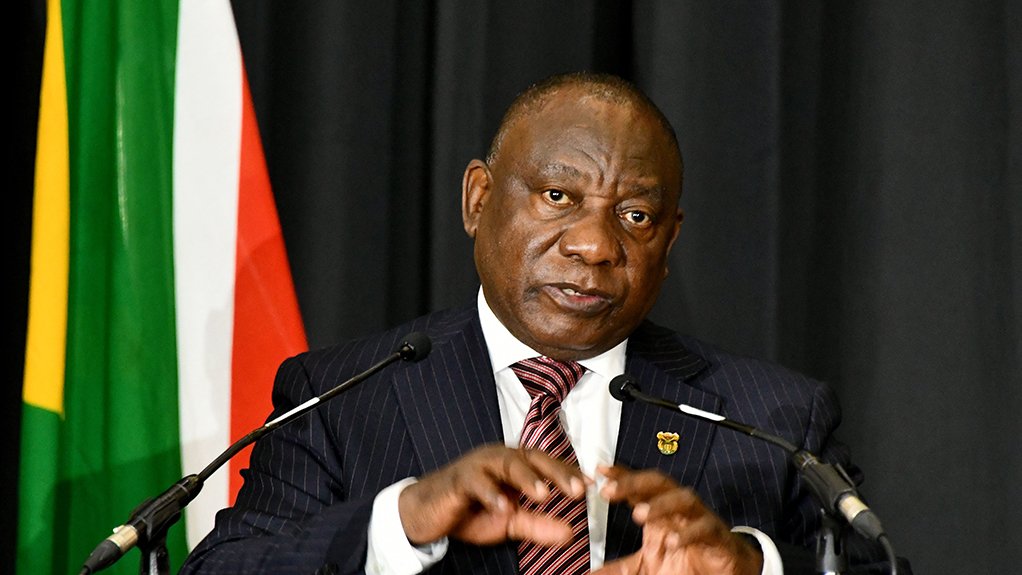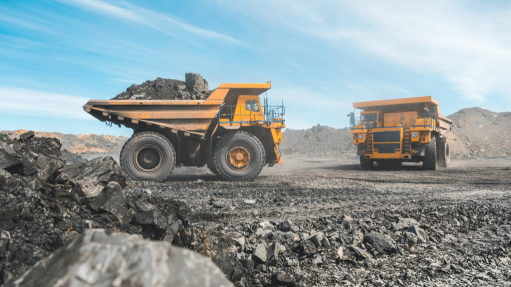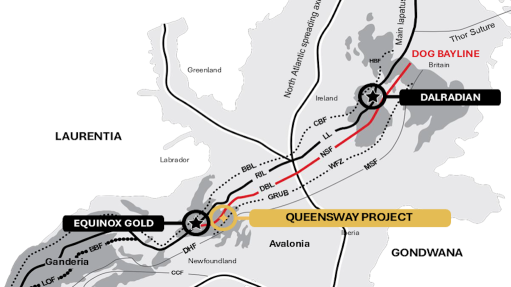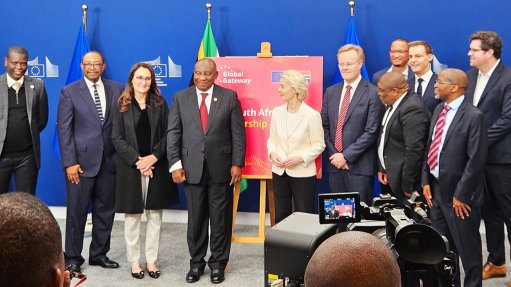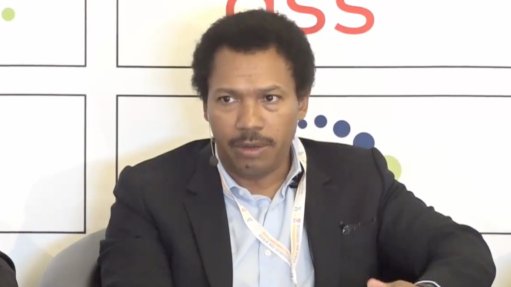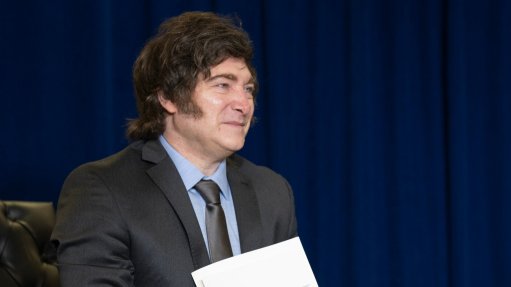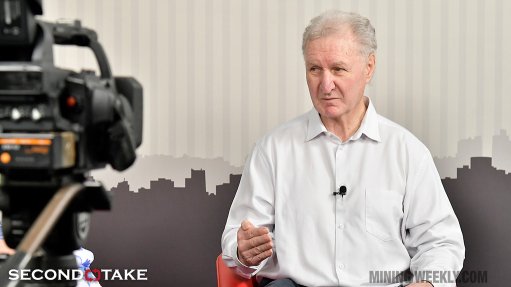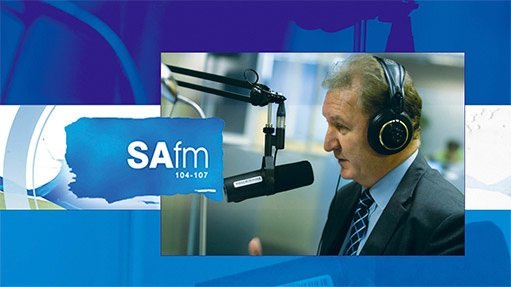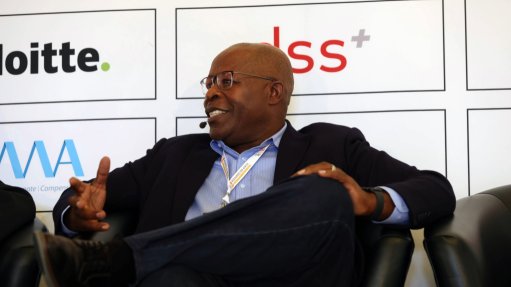Concerns raised over pace of power and rail reform while Ramaphosa lauds progress
President Cyril Ramaphosa has offered an optimistic assessment of the economic reforms being undertaken in South Africa’s electricity and freight logistics sectors, amid growing concern about the pace of progress with regard to opening the country’s railways and ports to competition and signs of potential stalling in the electricity sector.
In his weekly letter, Ramaphosa highlighted the release of the latest progress report on Operation Vulindlela, the scope of which was recently widened by the Government of National Unity to include municipal recovery, digital services and spatial equality components.
The initiative previously focused on addressing unreliable electricity supply, inefficient rail and ports, high data costs, water-licence backlogs, and a visa system that had deterred investors and tourists.
Linking the reduction in loadshedding over the past year to the reforms, Ramaphosa said that, during the second wave of Operation Vulindlela there would be accelerated moves to introduce competition in electricity generation to introduce greater choice for consumers and drive down costs.
“As part of this process, work is under way to establish an independent Transmission System Operator (TSO) within the next five years, in line with the Electricity Regulation Act.
“We have also made significant progress towards enabling greater investment in our transmission network, including from the private sector, with regulations to govern these investments.”
However, recent developments in the electricity industry have also raised concerns that the pace of reforms is slowing, with Eskom showing a willingness to exercise its market dominance and with the National Energy Regulator of South Africa (Nersa) still not adequately capacitated to shepherd through the regulatory changes needed for the transition.
Recent developments in relation to electricity trading have provided some visibility of the problems that are emerging, with Eskom having objected to the most recent licensing of traders and having excluded traders from using its newly launched virtual wheeling platform.
While Eskom has consistently expressed its commitment to reform, and the National Transmission Company South Africa (NTCSA) is making significant progress in establishing the South African Wholesale Energy Market, the utility has also argued that an orderly transition should be based on established rules, which it says are not yet in place.
In response, Nersa has belatedly announced a process for establishing trading rules by June next year; a development which Eskom has told Engineering News was an “important step forward in the evolution of the electricity industry in South Africa”.
Nevertheless, the utility has not withdrawn is threat to seek a legal review of the licences, telling Engineering News that the legal application had not been issued earlier because not all reasons for decision (RFD) had been published by Nersa.
“The six-month review period to challenge the Nersa decision starts to run from the date of publishing the RFDs, of which Eskom’s external attorney are busy finalising.”
TUSSLE OVER TSO
Some commentators have also expressed concern about the pace of unbundling at Eskom, which is meant to be separated into Eskom Generation, the NTCSA and the National Electricity Distribution Company of South Africa in line with a 2018 roadmap.
While NTCSA has been legally separated, it has not yet been fully unbundled to form the independent TSO referred to by Ramaphosa and there is also still much haggling over the future of the transmission assets.
The transfer of these assets to NTCSA is likely to be key to ensuring that it has the balance sheet to finance the much-needed expansion of the network.
In light of this tussle, Ramaphosa’s emphasis on the need for an independent TSO could be a signal that he wants Eskom’s management to continue to embrace the reforms that are seen as key to accelerating private investment and competition in the sector.
Meanwhile, the President also highlighted changes under way in the rail sector, including the establishment, in April, of the Transnet Rail Infrastructure Manager, or TRIM, which was seen as a key milestone in opening a network monopolised by Transnet to private train operating companies.
While 98 requests for access have been receive, there has been no formal allocation and Ramaphosa said a revised Network Statement would be published soon and capacity allocated in response to these requests.
“A Private Sector Participation Unit has been established within the Development Bank of Southern Africa to facilitate and fast-track private sector participation in logistics.
“A request for information for private sector participation projects in the rail system and ports has received a strong response from the market, and will enable us to mobilise new investment to modernise and expand our logistics infrastructure,” he added.
SCATHING ASSESSMENT
However, in a scathing weekly letter of her own Business Leadership South Africa CEO Busisiwe Mavuso argued that the decision by S&P Global to downgrade Transnet’s credit rating was not just a reflection of Transnet's financial distress.
She argued it was also a “damning indictment of years of failed leadership, union militancy and a government that continues to bail out State-owned enterprises without demanding fundamental reform”.
“S&P is calling out what has become clear to many of us – Transnet is seemingly resisting change and moving too slowly,” she wrote.
“The S&P decision should be a wake-up call – Transnet is going in the wrong direction and we need to act urgently.
“Transnet cannot continue as if it is business as usual and President Ramaphosa needs to act to get the agreed reforms implemented fast,” Mavuso wrote.
Complicating matters was rising resistance to the reforms among some opposition parties which Ramaphosa said had the “misguided and baseless” notion that the changes in power and logistics were akin to privatisation.
“The measures we are taking are common sense reforms that will preserve public ownership of key infrastructure while introducing greater competition, dynamism and investment.
“A number of our peer countries introduced similar reforms, which have powered their economies to higher levels of growth,” he wrote.
Press Office
Announcements
What's On
Subscribe to improve your user experience...
Option 1 (equivalent of R125 a month):
Receive a weekly copy of Creamer Media's Engineering News & Mining Weekly magazine
(print copy for those in South Africa and e-magazine for those outside of South Africa)
Receive daily email newsletters
Access to full search results
Access archive of magazine back copies
Access to Projects in Progress
Access to ONE Research Report of your choice in PDF format
Option 2 (equivalent of R375 a month):
All benefits from Option 1
PLUS
Access to Creamer Media's Research Channel Africa for ALL Research Reports, in PDF format, on various industrial and mining sectors
including Electricity; Water; Energy Transition; Hydrogen; Roads, Rail and Ports; Coal; Gold; Platinum; Battery Metals; etc.
Already a subscriber?
Forgotten your password?
Receive weekly copy of Creamer Media's Engineering News & Mining Weekly magazine (print copy for those in South Africa and e-magazine for those outside of South Africa)
➕
Recieve daily email newsletters
➕
Access to full search results
➕
Access archive of magazine back copies
➕
Access to Projects in Progress
➕
Access to ONE Research Report of your choice in PDF format
RESEARCH CHANNEL AFRICA
R4500 (equivalent of R375 a month)
SUBSCRIBEAll benefits from Option 1
➕
Access to Creamer Media's Research Channel Africa for ALL Research Reports on various industrial and mining sectors, in PDF format, including on:
Electricity
➕
Water
➕
Energy Transition
➕
Hydrogen
➕
Roads, Rail and Ports
➕
Coal
➕
Gold
➕
Platinum
➕
Battery Metals
➕
etc.
Receive all benefits from Option 1 or Option 2 delivered to numerous people at your company
➕
Multiple User names and Passwords for simultaneous log-ins
➕
Intranet integration access to all in your organisation



